Intl. Trade Union Condemns Iran’s Crackdown On Protests
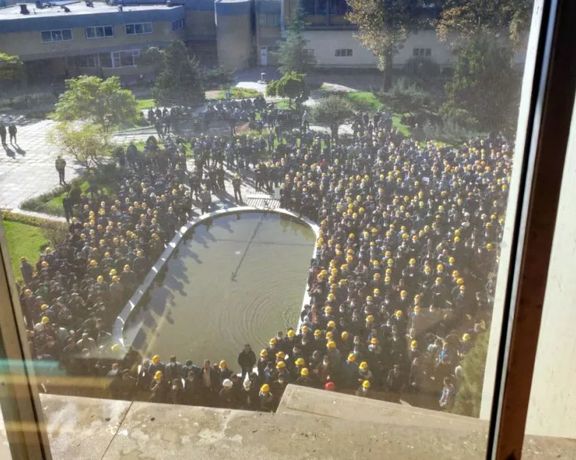
The International Trade Union Confederation has condemned repression against the people of Iran by the country's “misogynistic regime”.

The International Trade Union Confederation has condemned repression against the people of Iran by the country's “misogynistic regime”.
The confederation issued an “emergency resolution” during a congress Monday in Melbourne, Australia, slamming the killing of hundreds and the arrest of thousands of people during nationwide protests.
“Iranian women, supported by men, have bravely protested across the country for their rights, and unions have held strikes, in the face of brutal repression. Hundreds of people have been killed, several protesters have been sentenced to death, and 15,000 have been arrested,” reads the resolution.
The confederation also slammed the systematic violation of the fundamental rights of the Iranian people, including their rights to freedom of association, as well as of freedom of speech.
“Iran is consistently ranked as among the worst countries in the world for workers' rights. Several trade unionists are serving lengthy prison sentences simply for standing up for fundamental rights,” states the resolution.
The ITUC further demanded the release of imprisoned trade unionists, and all those detained and imprisoned in blatant violation of international law.
It called on the Iranian authorities to end their violence against women and girls and to respect their rights and all the rights of all Iranians to freedom of association, and freedom of expression.
The International Trade Union Confederation (ITUC) is the world's largest trade union federation. The ITUC represents 207 million workers through its 331 affiliated organizations within 163 countries and territories.

More than three hundred Iranian translators have joined other professional groups expressing their support for the protest movement against the Islamic Republic.
They have announced that they will stand against all types of discrimination and prohibitions that have made life in Iran similar to “mere survival in forced labor camps.”
They also condemned the killing of civilians and children, saying like others in Iran and abroad they stand with “Woman, Life, Freedom” movement.
The statement, which is published in several languages, including Farsi, English, Kurdish, German, French and Italian, is signed by famous figures like Dariush Ashuri, Soroush Habibi, Babak Ahmadi, Leily Sazgar, Nazi Azima, Khashayar Deyhimi, Abbas Milani, Morad Farhadpour.
Translators have an important literary and intellectual role in Iranian society as a bridge to world literature and sciences for students and the public in general.
The signatories of the statement also announced that in face of the actions of the regime the only alternative is to resist, adding that “nothing” will separate them from standing with “freedom-seeking youth.”
The translators slammed the censorship that has existed in Iran for many years, speaking based on their first-hand experience with the government’s elaborate censorship machine. Every publication goes through a cumbersome process of censors reviewing content and either deleting pages from books or banning their publication altogether.
They further vowed to deliver the books and texts the regime prevented from being published to citizens in any way possible.

The Islamic Republic has intensified its crackdown on antigovernment protests in Kurdish areas with military vehicles deployed and live bullets used against people.
Following violent clashes in the city of Mahabad on Saturday, a small Kurdish-majority city in West Azarbaijan province, the people of other cities across the country – especially Kurdish ones -- held protests in solidarity with Mahabad. The majority of Iran's 10 million Kurds live in the western parts of the country.
In addition to Kurdish cities such as Kermanshah, Paveh,Kamyaranand Saqqez – the hometown of Mahsa Amini -- people in the capital Tehran, the religious cityof Mashhad,Ardabil, and Orouniyeh (Urmia) as well as Kerman and Esfahan in central Iran poured onto streets to express their support for the protesters in Kurdish cities.
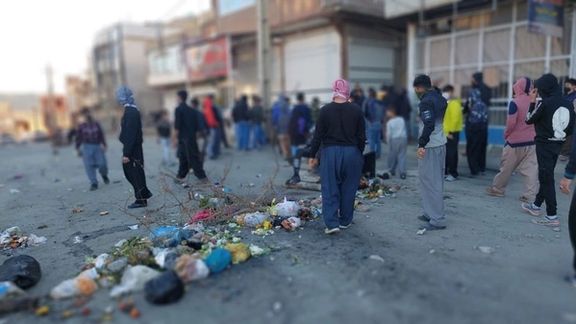
Videos on social media show a convoy of military vehicles with heavily armed troops in Mahabad while the sounds of heavy weaponry and incessant shooting can be heard. According to reports, military helicopters also carried members of the Revolutionary Guard to quell the protests in the city while streets have started to look like a battlefield. The IRGC also confirmed "strengthening" its forces in the Kurdish regions to confront "terrorist separatist groups" in the area. "The security of the people is our red line ... and dealing decisively with terrorists is our mandate," a statement by state media said.
The clerical regime has been trying to blame “rioters”, terrorists” and “separatists” for the two-month-long uprising, while protesters act with national unity as their motto.
US Secretary of State Antony Blinken expressed concerns on Sunday “that Iranian authorities are reportedly escalating violence against protesters, particularly in the city of Mahabad. We continue to pursue accountability for those involved, as we support the Iranian people.”
Prominent Sunni cleric Molavi Abdolhamid, a powerful dissenting voice in the Shiite-ruled Islamic Republic, called on security forces to refrain from shooting at people in Mahabad, who are mainly Sunnis. "Disturbing news is emerging from the Kurdish areas, especially from Mahabad ... pressure and crackdown will lead to further dissatisfaction," he tweeted.
According to reports, at least six people were killed during Sunday clashes in Piranshahr, also in West Azarbaijan, Javanrud in Kermanshah province, and Sanandaj in Kordestan. Activist account 1500Tasvir said a 16-year-old student and a schoolteacher were killed in Javanrud.
Nationwide protests in the country were ignited by the death of 22-year-old Iranian Kurdish woman Mahsa Amini in mid-September while she was in the custody of ‘morality police’. The current wave of the protests – the boldest challenge against the clerical regime -- has been described as a revolution by many pundits. The authorities have already responded with a heavy-handed crackdown that US-based Human Rights Activists News Agency (HRANA) said in its latest report that from September 16 until Friday, November 18, at least 402 protestors have been killed -- including at least 58 minors -- half a dozen already sentenced to death and more than 15,000 arrested.
A Kurdish human rights group said that in Javanrud security forces opened fire at people from the rooftop of the city’s Judiciary building, the same spot they used during the shooting of protesters in November 2019, sometimes called Bloody November. Security forces killed at least 1,500 people in less than a week.
Hengaw, a Norway-based rights group which monitors abuses in Kurdish areas, said that "In the Kurdish city of Marivan repressive forces have opened fire at people."
In the town of Divandarreh, also located in Kordestan province, “the government’s repressive forces opened fire on protesters on Saturday, killing at least three civilians,” Hengaw reported.
The rights group claimed that the security forces have killed at least 25 people in Kurdish cities since last Tuesday, November 17, when protesters thronged streets on the anniversary of Bloody November. “Twenty-three people were killed by direct fire, one by torture, and one by knife stabs,” Hengaw said.
The Islamic Republic’s attacks on Kurds is not limited to the crackdown on protesters as the IRGC has also stepped up shelling of Iranian Kurdish parties in the Iraqi Kurdistan region.
Late on Sunday, the IRGC once again launched missile attacks against the positions of the dissident Iranian Kurdish group, the Democratic Party of Iranian Kurdistan in Erbil. At least three missiles hit the party's positions including a hospital, causing casualties. The IRGC also targeted the Komala Party's positions in Iraqi Kurdistan's Sulaymaniyah with drones, the party's secretary general confirmed to Iran International.

A wave of resignations has started among presenters and hosts at Iran’s state broadcaster in solidarity with the ongoing protests across the country.
At least three presenters have resigned in the past few days. Farhad Fakhrbakhsh, who hosted a show about programs of the Islamic Republic’s broadcaster for over four years, announced his resignation on Saturday.
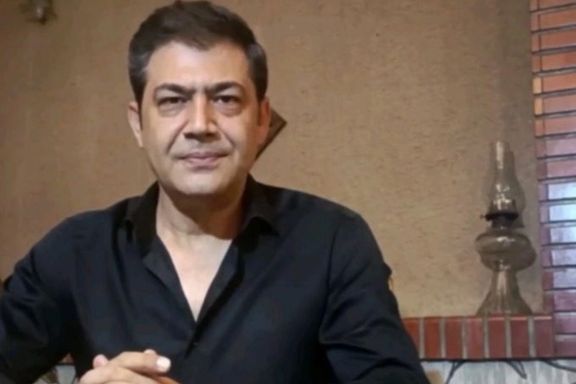
In a video message published on Instagram, he said entertainment activities need peace of mind that no Iranian has at the moment, adding that "the people of Iran are not in a good mood these days."
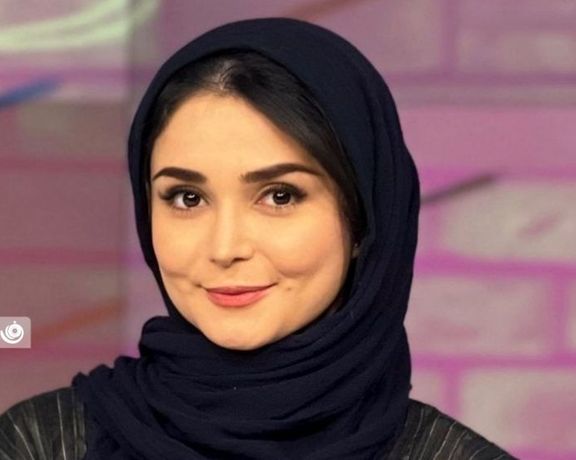
Kimia Gilani is another host that resigned after bursting into tears on live television when she was talking about Kian Pirfalak, the 10-year-old boy who was killed by security forces who fired at his family car in the city of Izeh in Khuzestan province this week.
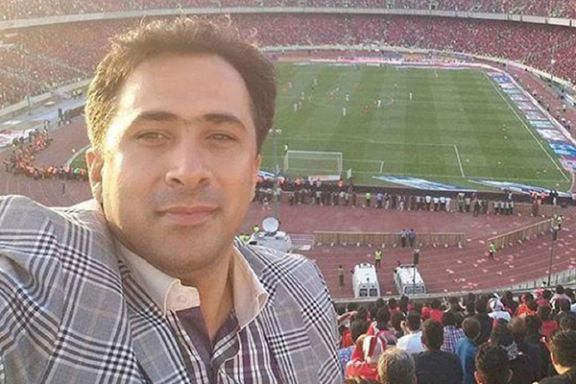
Davoud Abedi, a sport reporter who resigned in recent days, is well-known for his energetic presentations. In a message, he said that these days that people are dying on streets and he cannot fake a happy or energetic tone.
Barbod Babai, Mojtaba Pourbakhsh, Peyman Sheikhi, Majid Ghazanfari are among other presenters that have left the state TV since mid-September in support of the protests.
TV football (soccer) commentator and producer Adel Ferdosipour -- one of the most popular public figures in Iran -- rejected the offer by the state broadcaster to do the commentaries on FIFA World Cup 2022, in support of "bereaved Iranians." He was banned and dismissed by the IRIB in 2019 reportedly over pressure by the Revolutionary Guards, but was asked to come back for the World Cup.
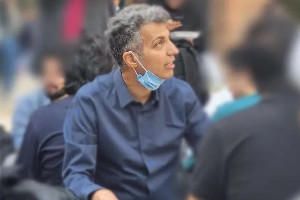
Iran’s state broadcaster was not very popular even before the current wave of protests began, but its popularity has declined dramatically in the past two months because it serves as the main mouthpiece of government propaganda that dismisses the protesters as “rioters.”
In October, ‘reformist’ commentator Abbas Abdi said what the state-run television broadcasts is “sheer propaganda." Ironically, when hackers interrupted the state TV news program October 8, playing a short clip, most Iranians found out about it through social media or on foreign-based satellite TV because few were watching the state TV.
IRIB’s penchant for one-sided news has deeply annoyed viewers who currently get their news from social media and Persian-speaking satellite TV channels based in Europe and the United States. The viewers no longer trust the media that belongs to and echoes the voice of a government they have ceased to trust for the same reason: Unilateralism, and justifying the government's often wrong measures and its police brutality in the streets.
This week, the United States designated six leading employees of IRIB. The US first designated IRIB (Islamic Republic of Iran Broadcasting) in 2013, and in 2018 reimposed the move in what then Treasury Secretary Steven Mnuchin said was a part of “the maximum pressure exerted by the United States” after withdrawal from the 2015 nuclear agreement.
In a message attributed to workers of the state broadcaster published on social media in recent days, it is claimed that most of the employees of the IRIB support the antigovernment protests and will help the people in case it falls into the hands of protesters. The message also provided directions on how people can take over the IRIB.
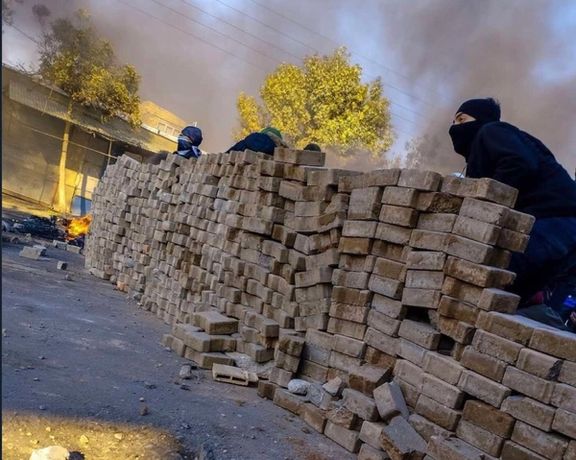
In the past two months Iranian protesters have made it quite clear they consider the regime unreformable and are pursuing its demise, without a clear leader.
Protesters have so far almost completely ignored President Ebrahim Raisi -- whose government has failed to deliver on most of his campaign promises including improvement of people’s livelihoods. They are not asking the president to improve the economy or build public housing. The slogans they chant in the streets, in universities, and from their windows and rooftops are addressed to someone else.
Often containing derogatory expressions and profanities, protesters chant against Supreme Leader Ali Khamenei whom they hold responsible for all their grievances including Raisi’s presidency.
Protests have intensified and become more frequent in most major cities, spreading to smaller towns across the country, even to some remote and generally quiet areas. This is a sign that what is taking place resembles more a revolution than demand for reforms.
Anti-government protests in many small cities and towns, often considered traditional and conservative, where everyone knows everyone else, were very rare if not non-existent in the past but the recent protests seem to show that people in these places have overcome their fear of retribution from the establishment and probably consider the days of the Islamic Republic numbered.
Protesters in Tehran chant, "Our target is the whole regime"
Reports of extensive protests in Murmuri, a small town of less than 4,000 in Ilam Province and Evaz, a town of 14,000 in Fars Province, for instance, surprised many Iranians who had not even heard the names of these places before. Videos posted on social media November 15 showed a large crowd of men and women, who had flouted their hijab, chanting together “Mullah should be banished!” in Evaz. In Abadeh, a town of around 50,000 last week they chanted “This is the last message: Our target is [to topple] the whole system!”.
The Islamic Republic, and its leadership, have nearly wiped out all opposition political groups including those who never wanted anything more than reforms, hugely limited the media, and even marginalized many insiders such as former presidents -- reformist Mohammad Khatami, hardliner Mahmoud Ahmadinejad, and moderate Hassan Rouhani – and former parliament speaker Ali Larijani, a conservative.
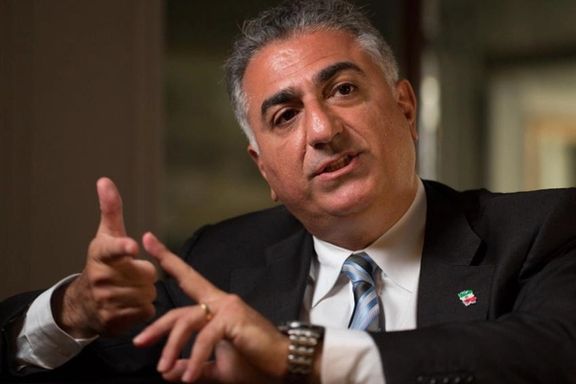
Nevertheless, for protesters, these former regime insiders, including Khatami who was once the most popular political figure in Iran, are not an alternative. The situation has led many to look outside Iran, among the diaspora, for figures who could at least lead the period of transition to a secular, democratic system.
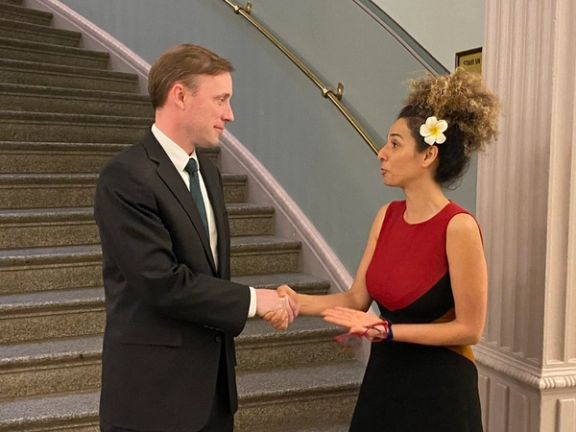
Several names have been suggested as leaders or members of an interim government in the post-Islamic Republic era by both protesters in Iran and the huge diaspora that has supported the movement with regular weekly rallies in major world cities.
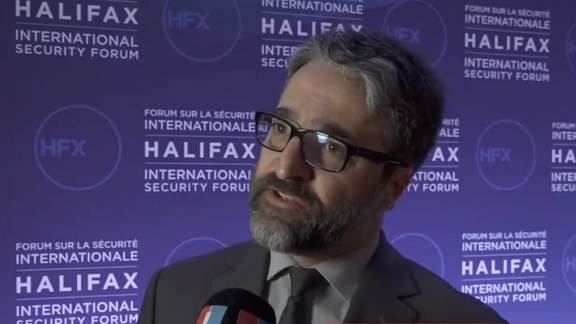
These include the former Crown Prince Reza Pahlavi, activists Masih Alinejad, Hamed Esmaeilion, Nazanin Bonyadi, and footballer Ali Karimi all of whom live abroad. There are also other possible candidates, such as Nobel laureate Shirin Ebadi, but no one currently residing in Iran.
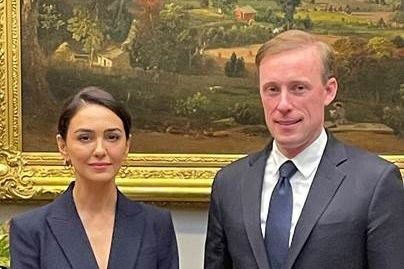
Thousands of people inside and outside the country, have used social media to call on these figures, whose political views are diverse, to form a coalition to lead the revolution. The hashtag “FormCoalition” created to reflect this wish is quickly gaining popularity.
“There’s no ideology behind this revolution. I think we will go to the end this time... The difference [with previous protests] is that there is great hope this time, the hope that the end of the Islamic Republic has come,” said Canada-based Esmaeilion at the Halifax International Security Forum Saturday which several others including Alinejad and Bonyadi also attended.
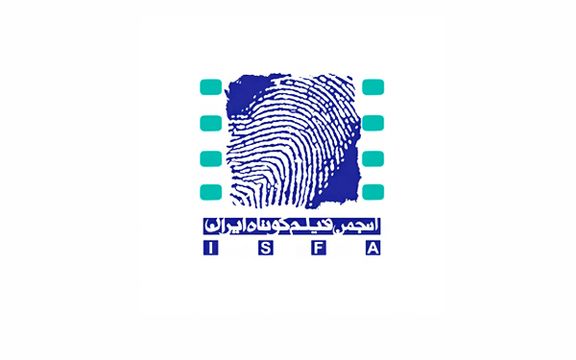
The Iranian Short Film Association has condemned the killing of youngsters and children by government forces saying that from now on it will stand with the people of Iran.
In a statement on Saturday, ISFA slammed the killing of Kian Pirfalak, the 10-year-old boy who was killed by security forces who fired at his family car in the city of Izeh, adding that “From now on, we will live and work in reality and stand where the dear people of Iran stand.”
ISFA also condemned “many redlines” by the Islamic Republic in filmmaking such as “infanticide”, adding that this time children are killed not in the movies but in a very horrifying way on streets.
Since the uprising, at least 47 children have been killed by security forces, with Kian Pirfalak killing as one of the most shocking incidents that aroused strong public anger.
The production of any short or feature film in the Islamic Republic requires a license from the ministry of culture and Islamic guidance, but the Short Film Association has stated that “from now on, retaining rights and expression of opinion does not need any license except the will of the nation.”
More than two months since the beginning of nationwide protests, the government is still heavily suppressing demonstrators. So far, nearly 400 people have been killed including women and children. As the number rapidly rises, the Islamic Republic refuses to accept responsibility and attributes the killings to terrorist and foreign groups.